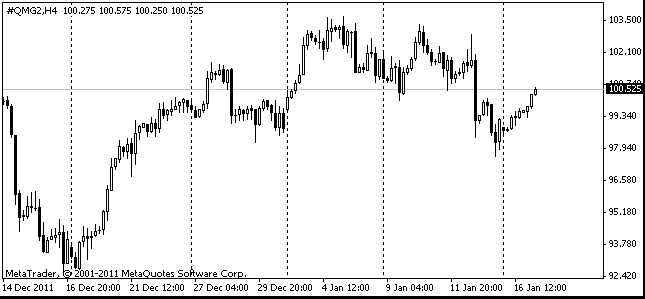EUR/usd
The single currency fell below 1.30 during yesterday's trading, but the increased optimism about the Greek deal caused a surge of growth in the single currency and it is now trading at 1.3130. The Greek politicians have announced that Europe's finance ministers will decide on the allocation of funds on Monday, February 20. This is exactly one month before the crucial payment to redeem the bonds by €14.4 billion. Now we can only keep our fingers crossed that neither Greek nor any other politicians will invent something worse over Friday and the weekend. Remember that earlier the markets expected the decision on the allocation of 130 billion not until the election, scheduled for April. We believe that the probability of such an outcome has become lower, but hasn't completely disappeared: over the past two years we've faced too many nasty surprises. Yesterday's statistics were relatively good. U.S. producer prices has risen to 0.1%, which is actually less than expected and suggests that inflation still lets the Fed carry out additional easing. The annual rate of price growth has fallen to the lowest level since January 2011. At the same time the housing market is showing some signs of life. Last month housing starts made 699K at an annual rate, which is 48% more than the lowest figure, recorded during the recession. Though from a historical perspective, all these fluctuations look like scarcely conspicuous ripples on the bottom.

GBP/USD
The British pound feels better than the euro despite the fact that the latest news mainly concerns the eurozone. The sterling managed to rise from 1.5670 to 1.58 yesterday. With respect to the euro, the pound is at its three-year lows. Undoubtedly, this situation is justified by the weakness of the euro area, but will be a great obstacle to the UK rebalancing, which both the Bank of England and the Government aim at. As the FT's chief economist Martin Wolf put it in his article, Britain needs a weaker pound and less profitable business. As to the latter, there is some progress in this direction. The pound remains relatively stable, since all its major competitors for various reasons have got into the market's bad books.

USD/JPY
The Japanese yen has been surprising by its liveliness since the beginning of the month. The quotes have already reached 79.10, which is a half-year peak of the currency. But once again it should be noted that before that the motion was caused by powerful direct interventions, but now it is more likely to be the result of a different approach of the BOJ or investors. This question is still open to discussion. It's highly probable that capital flows, which have been usually directed to Japan at this time of the year, now serve a different purpose, as the country spends money on its recovering.

oil
It's of interest that oil keeps trading in the uptrend since the beginning of the month and has entered the area of last May's highs. Generally speaking, the growth of quotes is influenced by a number of geopolitical factors, such as tensions over Iran and Syria. But apart from that, there are also psychological factors. People now are more loyal to growing gasoline prices. The prices, which a few years ago caused a serious reduction in consumption, now stir less discomfort. To add to this, Asia continues to show an impressive growth. As a result, it's very likely that the consolidation will happen at a higher level than WTI's current 102.
